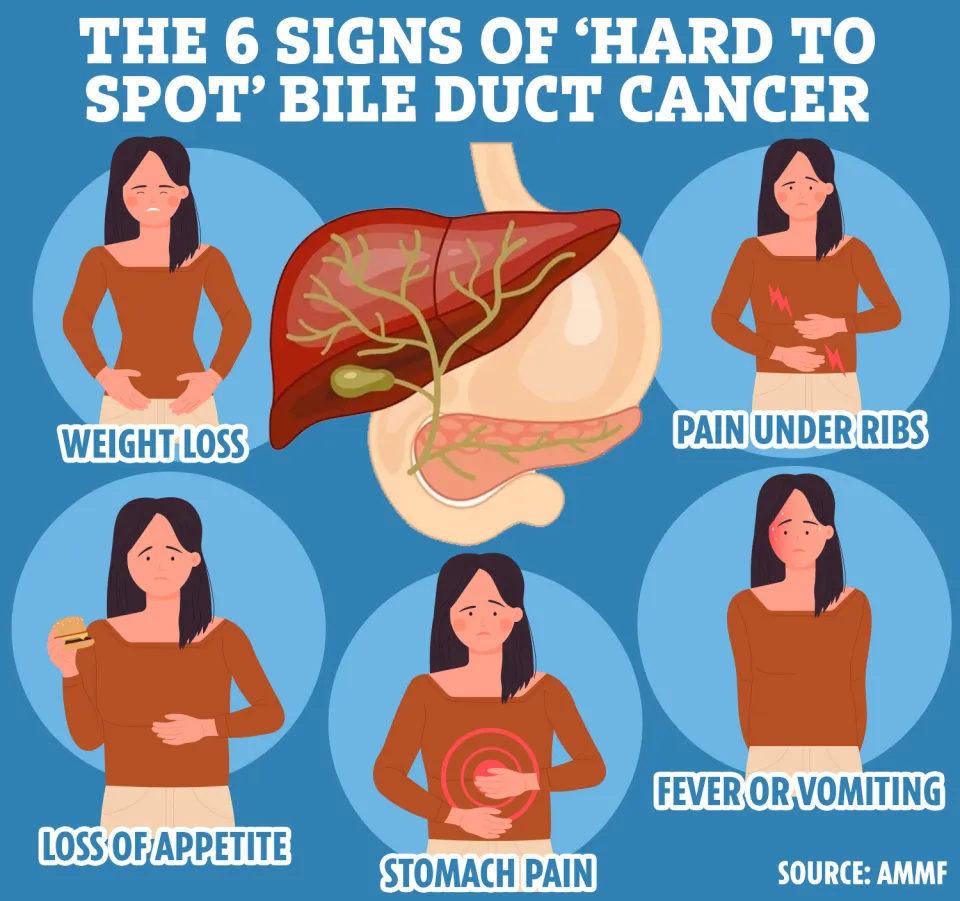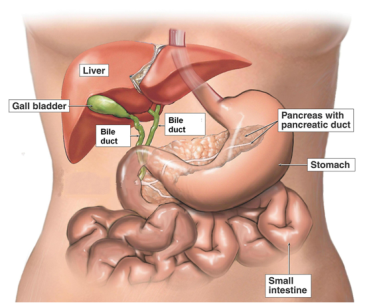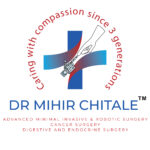Bile Duct Cancer – Causes, Symptoms, Diagnosis & Treatment
What Is Bile Duct Cancer?
Bile duct cancer, also known as cholangiocarcinoma, is a rare but aggressive form of cancer that starts in the bile ducts. These ducts are thin tubes that carry bile — a digestive fluid — from the liver and gallbladder to the small intestine. When abnormal cells grow uncontrollably in this system, they form tumours that can block the bile flow and affect digestion, liver function, and overall health.

Signs & Symptoms of Bile Duct Cancer
Bile duct cancer may not cause symptoms in its early stages. As the disease progresses, patients may experience:
- Jaundice (yellowing of skin and eyes)
- Dark urine, pale stools
- Itchy skin
- Abdominal pain, especially on the right side
- Unexplained weight loss
- Loss of appetite
- Fever or night sweats


Risk Factors
Certain conditions and lifestyle factors can increase the chances of developing bile duct cancer:
- Chronic liver disease or cirrhosis
- Bile duct inflammation (primary sclerosing cholangitis)
- Liver fluke infections (common in some Asian countries)
- Gallstones or bile duct stones
- Family history of bile duct cancer
- Smoking and heavy alcohol use
- Exposure to certain toxins or chemicals
Diagnosis & Staging
Diagnosing bile duct cancer requires a combination of medical tests:
- Blood tests to check liver function and tumour markers
- Imaging scans such as ultrasound, CT, MRI, or ERCP (endoscopic retrograde cholangiopancreatography)
- Biopsy to confirm cancer cells under a microscope
Staging is crucial to determine how far the cancer has spread:
- Stage I: Localized in the bile ducts
- Stage II: Spread to nearby tissue
- Stage III: Involvement of major blood vessels or nearby lymph nodes
- Stage IV: Cancer spread to distant organs
Treatment Options
Treatment for bile duct cancer depends on its stage, location, and the patient’s overall health:
- Surgery – The most effective option if detected early, where the tumour and affected bile ducts are removed.
- Liver Transplant – For patients with unresectable bile duct cancer but eligible for transplant.
- Radiation Therapy – Targets cancer cells and relieves symptoms.
- Chemotherapy – Used when surgery is not possible or to shrink tumours before surgery.
- Targeted Therapy & Immunotherapy – Newer treatments that focus on specific cancer cell mutations or boost the immune system.
- Palliative Care – Focused on improving quality of life and managing symptoms in advanced stages.
Prevention & Early Detection
While bile duct cancer cannot always be prevented, risk can be reduced by:
Early detection improves treatment outcomes significantly.
FAQs About Bile Duct Cancer
Bile Duct Cancer can be curable if detected at an early stage and treated with surgery. In advanced stages, while a complete cure may not be possible, treatments such as chemotherapy, radiation, and targeted therapy can help manage symptoms, slow progression, and improve quality of life.
Bile Duct Cancer is considered a rare cancer worldwide. However, it is seen more frequently in certain regions of Asia due to higher rates of liver fluke infections and chronic liver conditions.
Yes. Adopting healthy lifestyle habits can lower the risk of developing Bile Duct Cancer. Avoiding alcohol, quitting smoking, maintaining a liver-friendly diet, and treating underlying liver diseases promptly all play a role in prevention.
The survival rate for Bile Duct Cancer depends on the stage at which it is diagnosed. Early-stage Bile Duct Cancer has a better prognosis when surgery is possible, while advanced stages generally have lower survival outcomes.
Individuals with chronic liver disease, bile duct inflammation (primary sclerosing cholangitis), a history of liver fluke infection, or a family history of Bile Duct Cancer should consult their doctor about regular screenings and monitoring.


